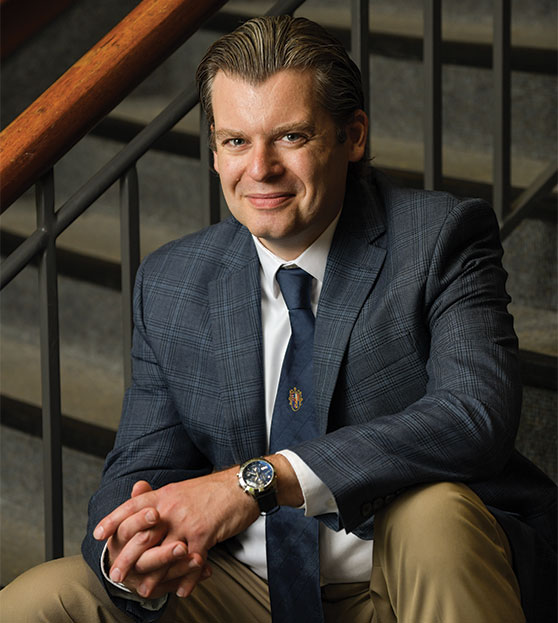What’s Stressful in Your Work?
Marcus Fila, Ph.D. | Assistant Professor of Management
Of course college students feel stress. Grades. Tuition. Peer pressure. Choosing the right table at Phelps Dining Hall.
But what about college faculty? How does the pressure they feel at work compare to their corporate counterparts? Those are some questions Dr. Marcus Fila is examining in the latest of his studies on workplace stress, and they’re a window into what employees value in other fields, too.
“From what I’ve read and observed, academics tend to have a lot more autonomy than even those in fairly high-level business positions — vice presidents of Fortune 500 companies,” he says.
“People are naturally creative, and they want mastery over what they’re doing — some, obviously, more than others. But almost everyone likes to feel a sense of being autonomous, and being asked their opinion, and being given freedom about how they go about it.”
The rub is that professors really have two quite different jobs, as teachers and as researchers, Fila says. (He should know.) Teaching overflows with autonomy, but research, not so much. Professors get to pick what they’ll research, but they lose all control when they submit papers to journals. At liberal arts colleges like Hope, “you’re probably judged 70 to 80 percent on your ability to teach,” he says. At research universities, on the other hand, jobs may hinge on frequent publication. Cue the anxiety.
Workplace stress presents differently in each profession and culture, Fila says. An earlier 10-year career as an executive headhunter gave him a front-row seat on what can go awry. Now a specialist in occupational health psychology, he conducts research to identify job-specific flashpoints in hopes it will help human resource professionals avoid non-essential stressful elements as they design positions. The upshot can be a win-win: happier staff, and lower employee turnover.
One strategy he thinks may decrease professors’ stress is for colleagues to talk not just about what they’re researching, but also why. This helps each researcher focus on what’s great about the project, not just the hoped-for publication. “Research is a very lonely game sometimes. To talk with people about why you’re interested in it can help,” Fila says.
In the study he began in 2018, he’s asking American and British professors how demanding they perceive their work to be, and their sense of control and support as teachers, as researchers, and in administrative and committee work. In late 2018 he was analyzing 288 surveys received from faculty at 12 U.S. and U.K. schools, and he plans to mine 10 times that many by the time he’s through.

